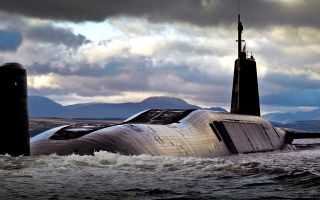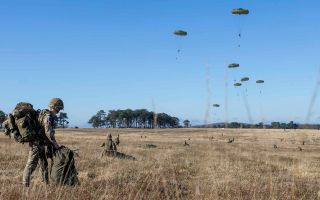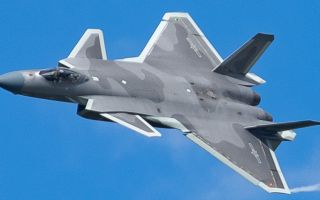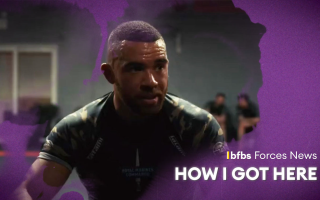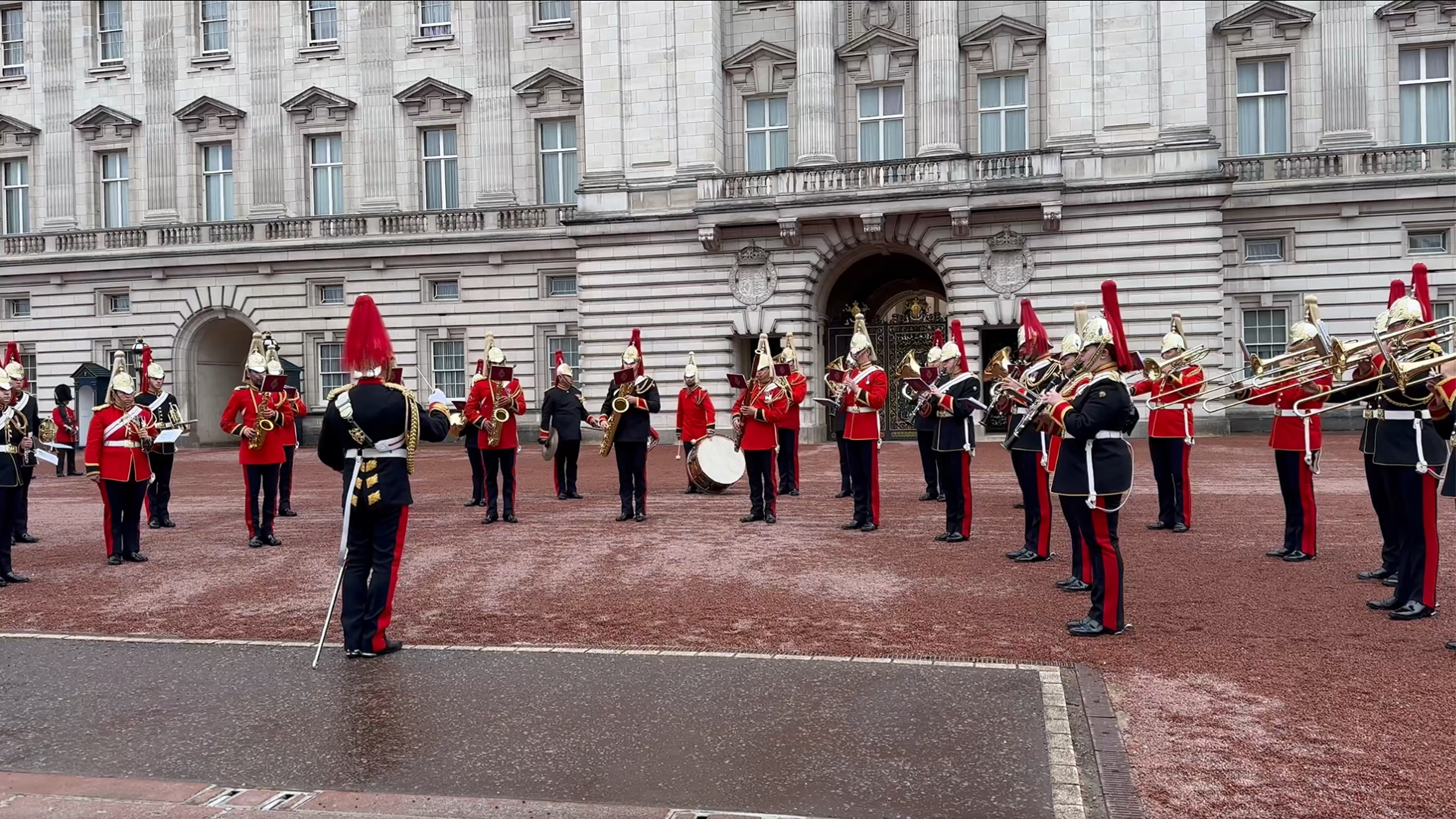
Pride at the Palace: Band of the Household Cavalry play LGBTQ+ pop anthem

The Band of the Household Cavalry have played a pop anthem outside Buckingham Palace - and the Royal Family shared it to mark Pride.
A video posted on X by the official Royal Family account shows the band performing Pink Pony Club by American singer Chappell Roan, a cult LGBTQ+ favourite.
The short clip, set against the backdrop of the Buckingham Palace gates, was captioned with just three emojis: a rainbow flag, a disco ball and sparkles - along with #Pride2025.
- Coming Home: LGBT Armed Forces veterans see their stories told in special comic
- Defence Secretary promises Armed Forces LGBT compensation will be paid swiftly
- Twenty-five years since end of gay ban, I'm proud I pushed the accelerator of change
Roan's song is a coming-of-age anthem about a young woman who leaves behind expectations and finds self-expression in a gay nightclub.
Lyrics include the line: "I heard that there's a special place/Where boys and girls can all be queens every single day."
The high-camp pop of Pink Pony Club struck a chord on social media, with one user writing: "Oh how Princess Diana would have LOVED this."
Elsewhere on X, the Army LGBT+ Network shared its own message to mark London Pride and the 25th anniversary of lifting the ban on LGBTQ+ people serving in the UK Armed Forces.
The post reads: "25 years after the ban on serving was lifted we marched with Royal Navy, Royal Air Force, MOD Civil Service Networks, @fightingwpride, Veterans & Cadet Forces contingents at Pride in London.
"Always great engagement but all the more powerful to march with our Veterans 25 years on."
Marchers in uniform carried rainbow flags as they joined tens of thousands of people in the capital's Pride parade.
The Ministry of Defence lifted its ban on gay and lesbian personnel serving in January 2000.
Earlier this year, some LGBTQ+ veterans were awarded the new Etherton Ribbon, introduced following an independent review into the the impact of a historical ban on LGBT+ serving personnel.
However, some recipients have said they won't wear the ribbon until financial redress is provided.
The ribbon was named after Lord Etherton, Britain's first openly gay senior judge, who led the review into the impact of the pre-2000 ban.

